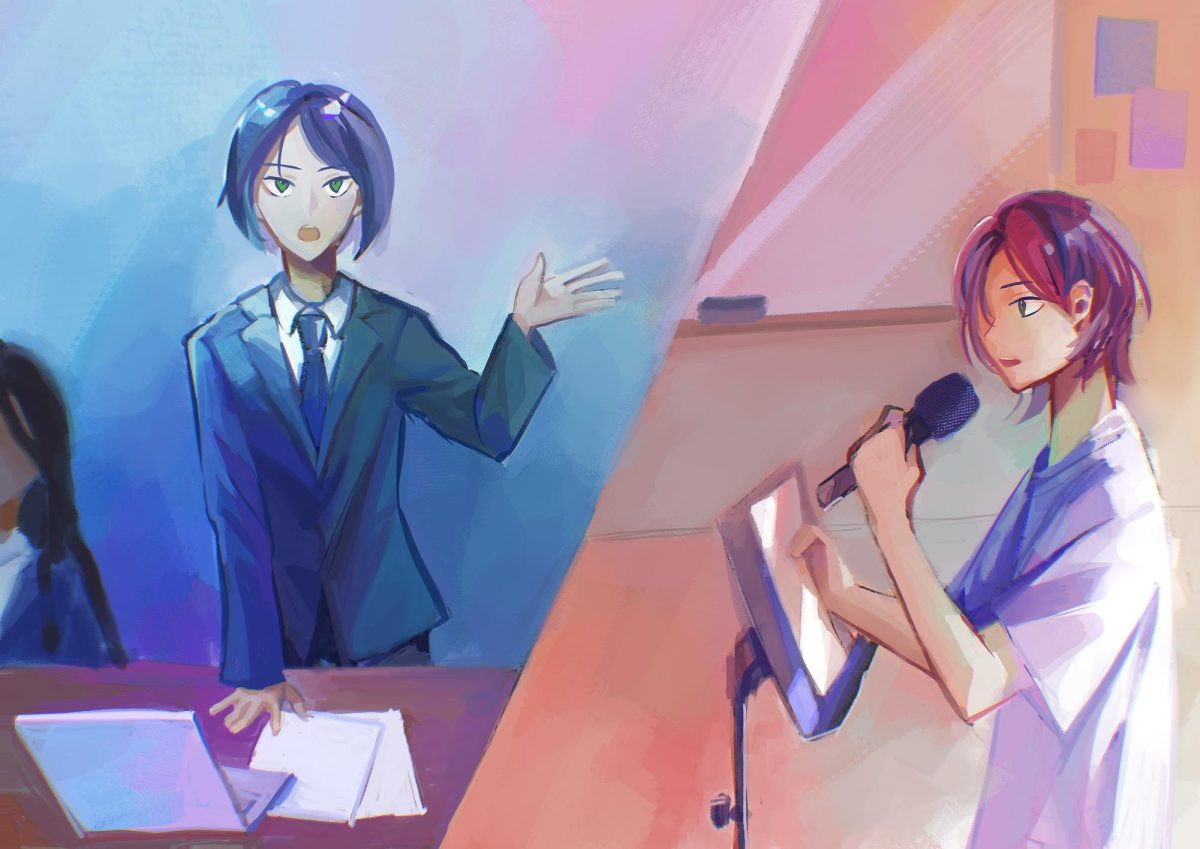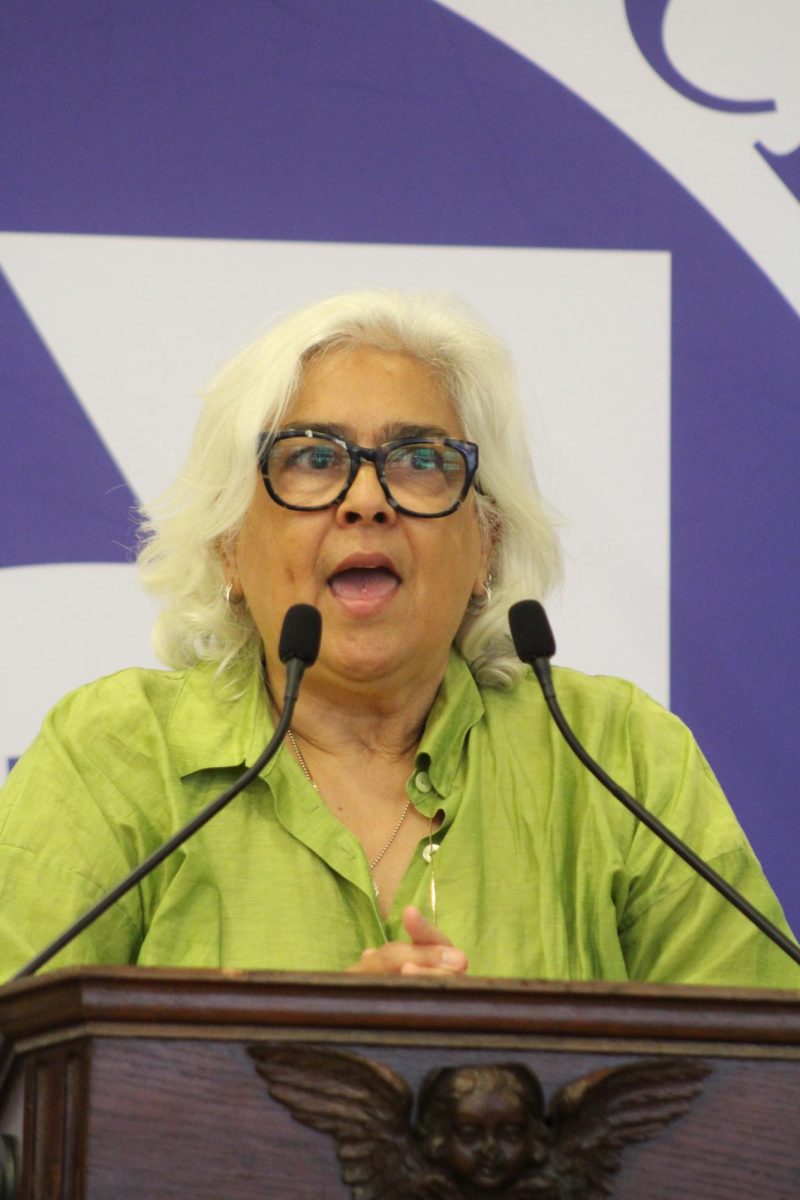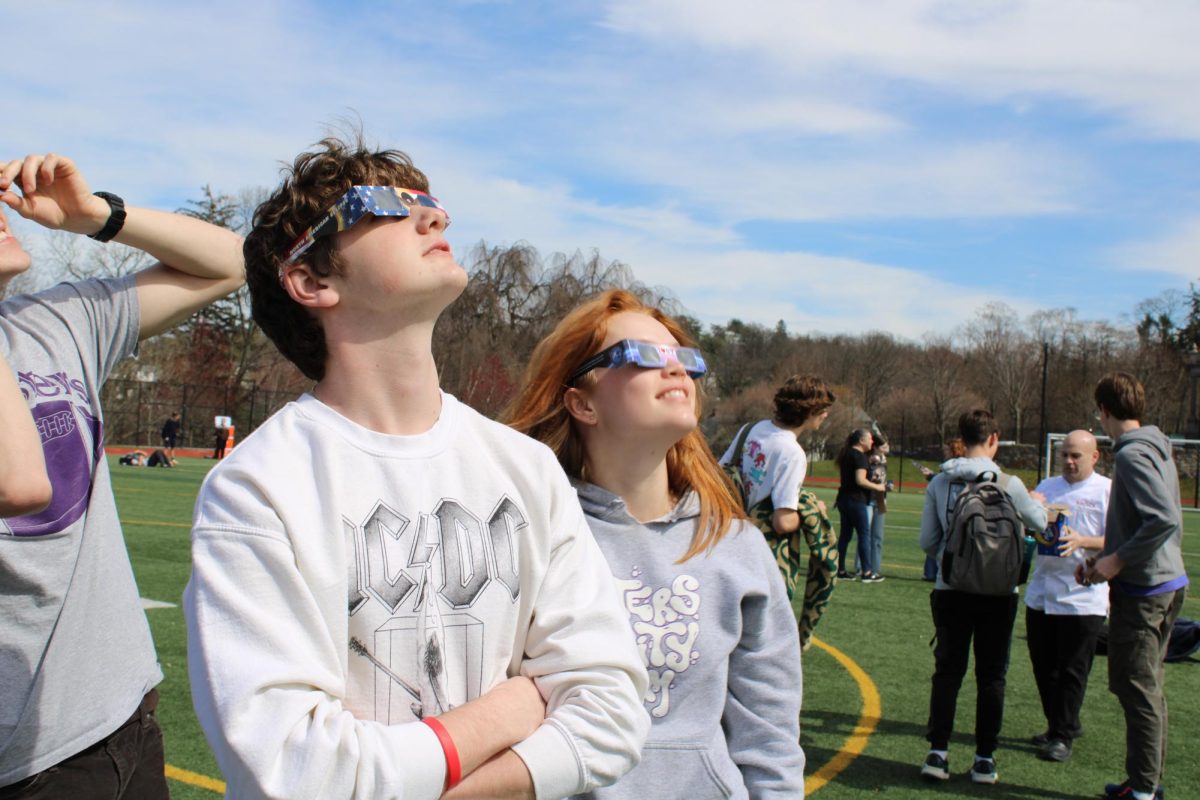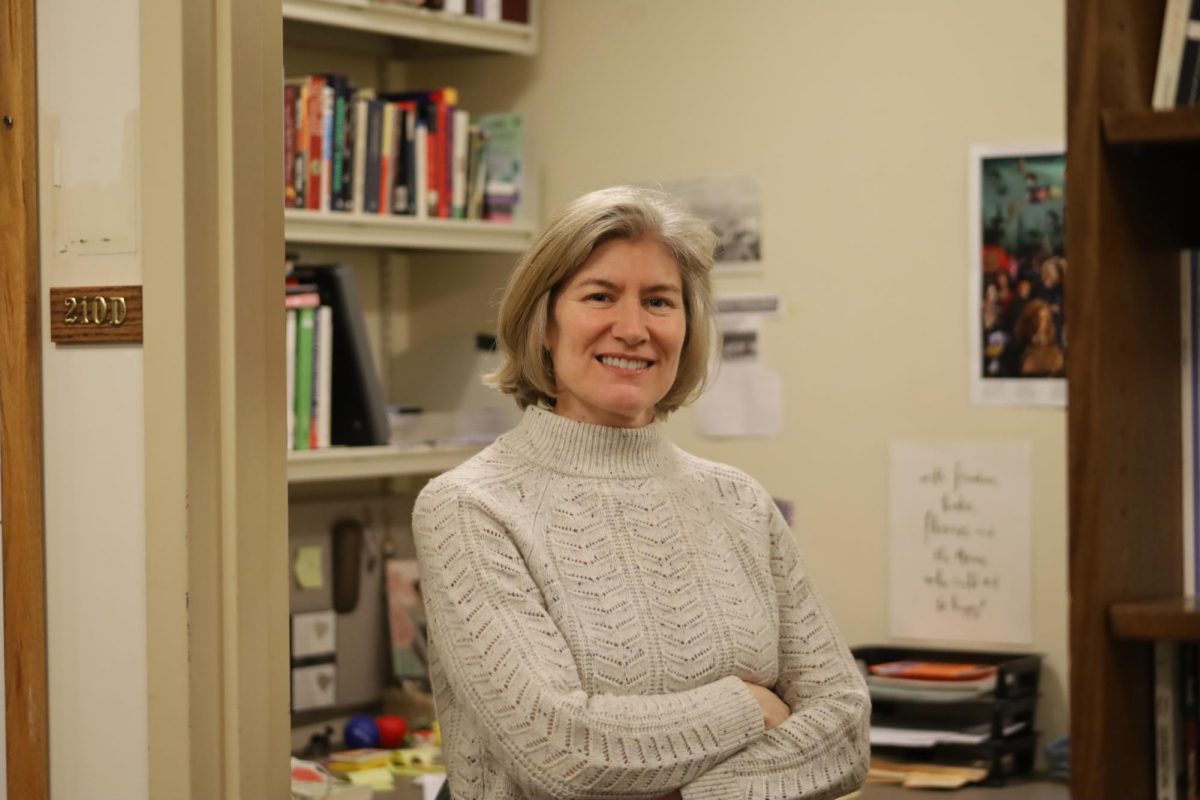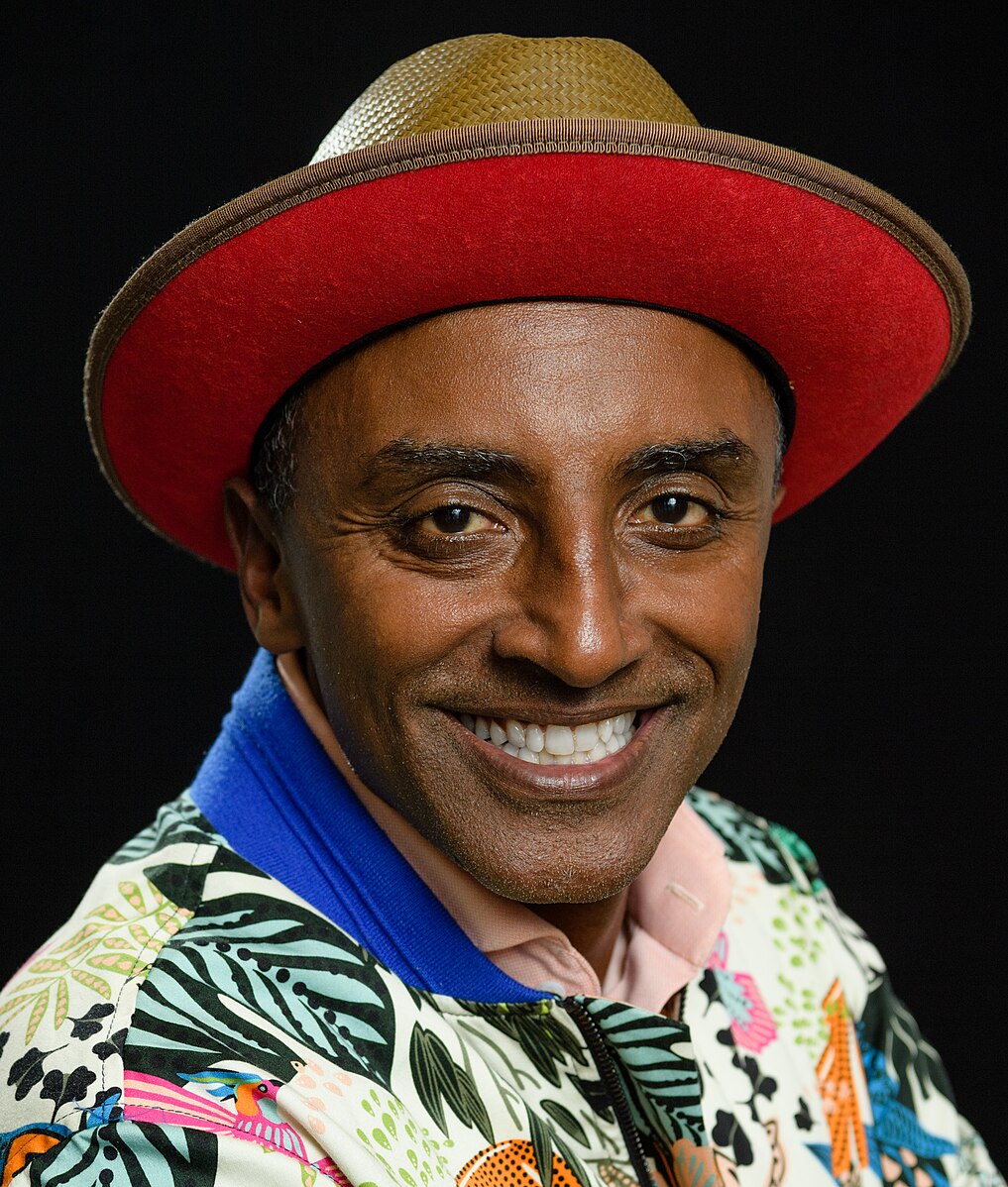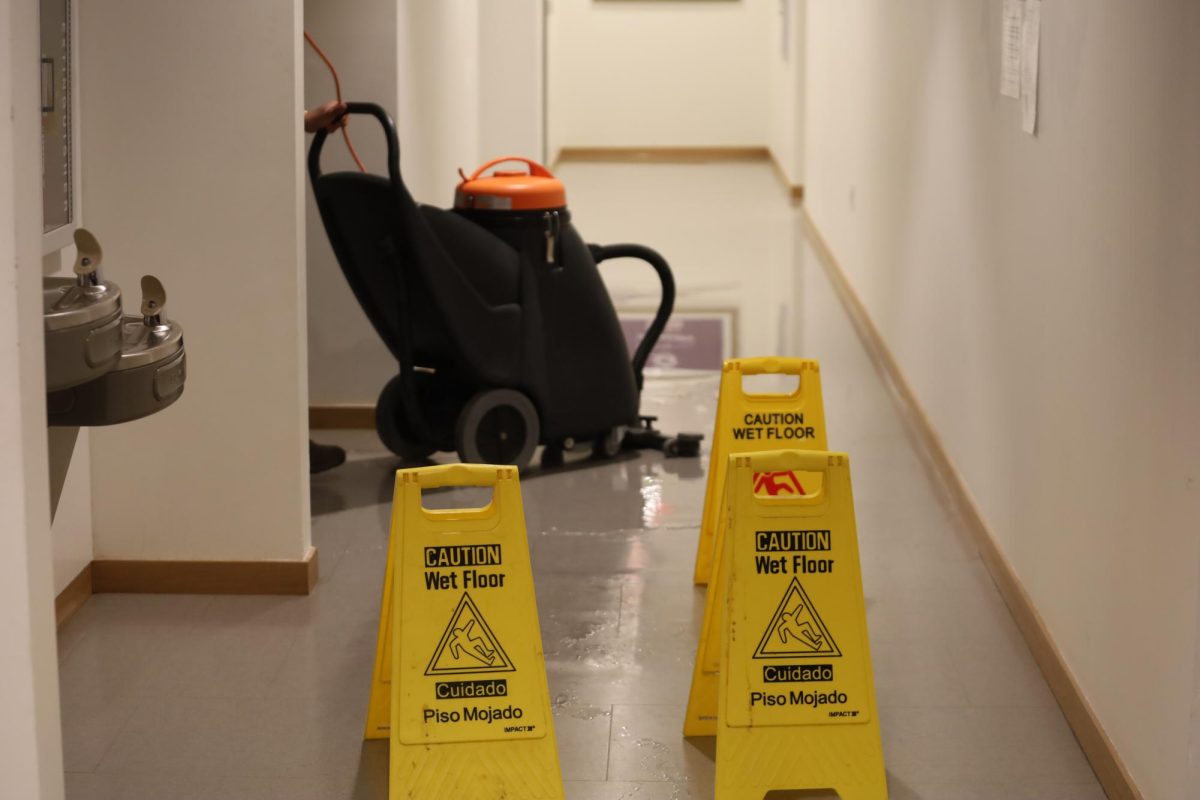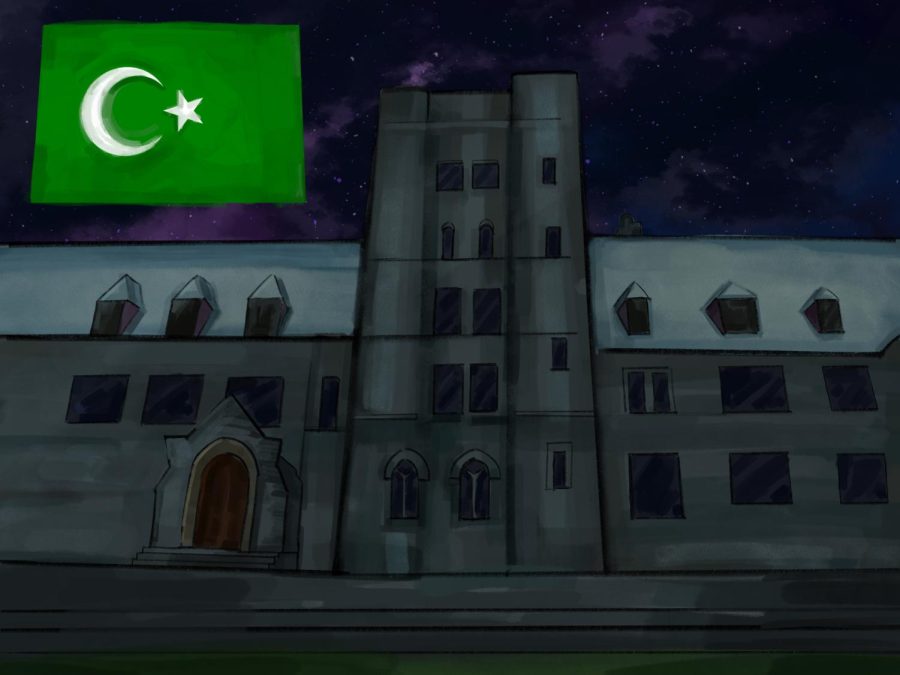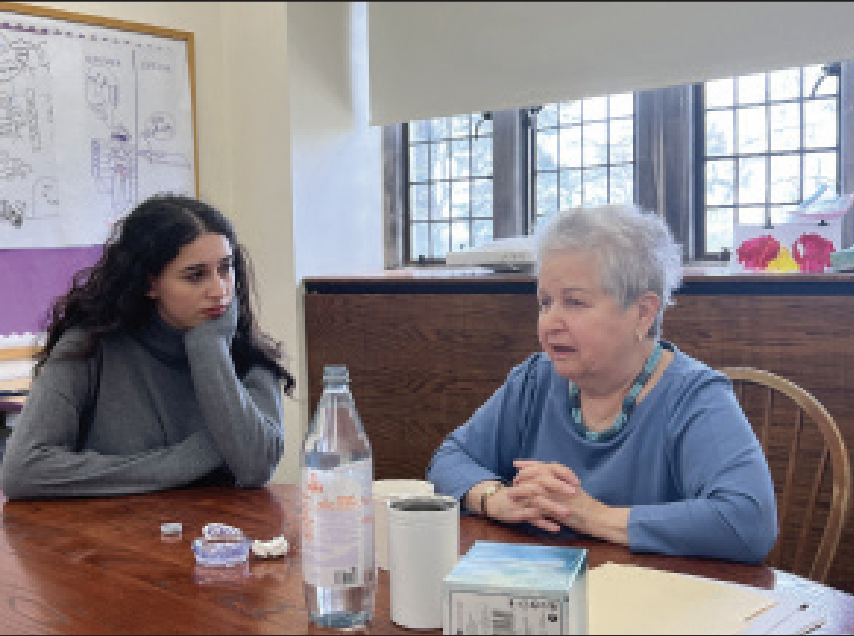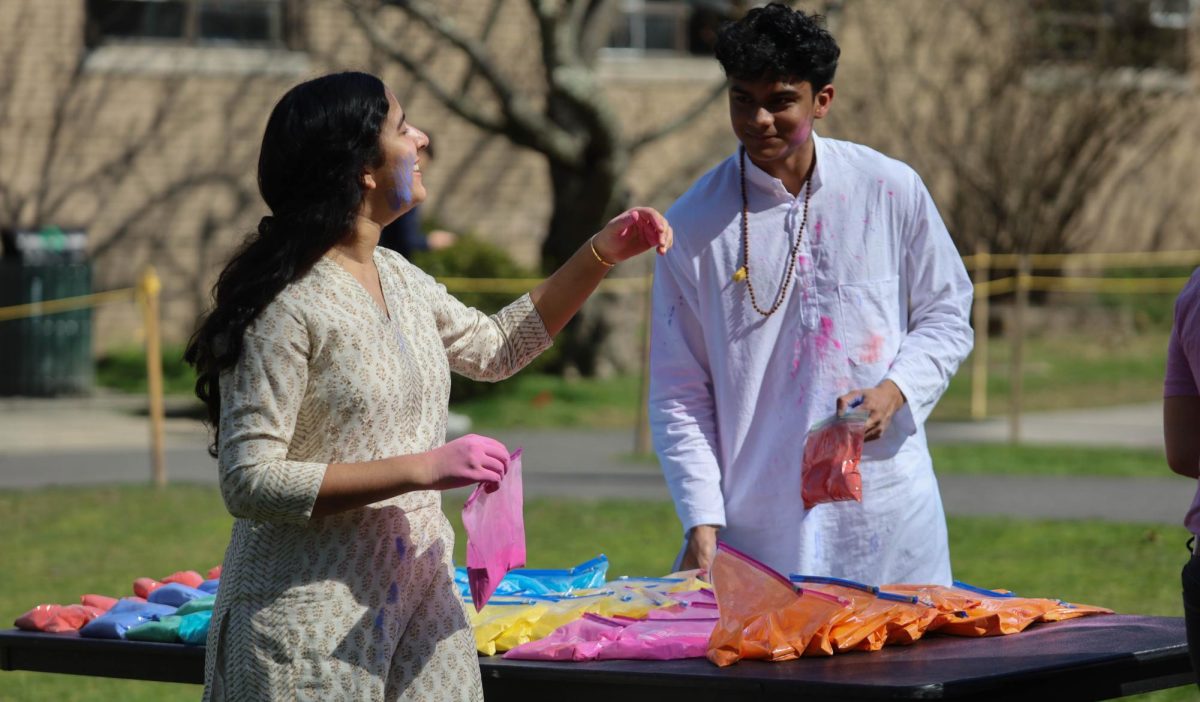This bill is in its early stages and is subject to change. It will be updated as it is developed more. This story covers the earliest iterations of the Executive Committee Bill.
For Sophie Moussapour ’25, public speaking has been a skill that has come through her experience as a three-year member and current secretary of Model United Nations (MUN) but she isn’t the only one.
This year in MUN, 118 students actively participate in the club where they learn valuable skills about speaking and being effective communicators. As Moussapour is about to begin her required semester course on public speaking, she plans to change how the schedule looks for those with pre-existing public speaking skills to create an exemption for members of MUN and the Science Research team.
Moussapour first had this idea a year ago, but after ascending to a role of leadership within the club, she found herself now bearing the role of orchestrating and providing feedback to delegates on their speaking ability. This provided a revelation in which Moussapour became conscious of all of the intricacies of public speaking.
“ I think [the experience] really has given me a front seat, or like a front-row view, of the skills that we’re actually teaching the kids, ” she said.
“I was able to compete in a Model UN conference with a couple of freshmen who were new and just seeing, from the beginning of the day to the end, how much more comfortable they got, I think it really just proved to me that, yeah, I don’t have the data that but I can see the change happening and I believe these kids are meeting the requirements and they are going to be going into public speaking at a really advanced level, ” Moussapour concluded.
In the process of creating this bill for the Executive Committee (EC), she also contacted debate club leadership and science research leadership but realized that it was unfair to include debate because the club is fairly new and is in the process of revamping.
The process of creating a bill in EC requires several steps. Moussapour started by approaching the student body first. An email including a Google form survey was sent to members of MUN, the science research team, and the debate club members.
The survey asked students about their experience with the possible overlap of skills, how they felt they were prepared for the public speaking class, and, most importantly, if they found the course to be engaging. Currently, she is in the process of synthesizing all the data but Moussapour has seen some promising results.
Following that step, Moussapour spoke with several adults around the community including Associate Head of Upper School Sara Thorn and Upper School science teacher Kristina Gremski.
In her conversation with Thorn, a possible compromise was formed. Those who can be exempt from the class will still be required to produce the public speaking final project, creating and giving their own speech. Furthermore, students will be supplied with resources to cover the skills that they didn’t previously learn. Sophie enjoyed this idea and agreed to explore implementing this in her bill.
Senior Sam Navin is a two-year participant in the Masters Science Research team and is a former delegate in MUN at his previous school New Rochelle High School. Navin explained the intensity of the public speaking aspect in which students present their research to other students and professionals in the field of science at fairs.
“I think that I was there for upwards of five hours and I had to, you know, put together a presentation that was coherent and eloquent and basically just wrote down my entire project, ” Navin said.
“And then you pretty much have to repeat that and talk about it and answer candid questions over the course of several hours,” he added. “ So it’s pretty tough. It’s exhausting.”
Navin was unsure whether the course at Masters helped him in these because he already had fundamental knowledge from MUN in his previous school. His view of the class was that it was able to cover the broad skills of public speaking. Nevertheless, he saw an upside in this bill if it was potentially passed.
“Because I think that if you’re intensively invested into Model UN, or science research, then I mean, I think that you’re getting that broad coverage plus a little extra little specialty into whatever you’re doing.”
— Sam Navin
For public speaking teacher Curt Ebersole, this bill can have impactful consequences in the size and amount of classes he teaches. Currently, he teaches three sections of classes while Dopa teacher Samuel Appiah teaches two sections. Together they formulate a class curriculum in which Ebersole and Appiah aim to “build confidence, release the fear of getting up and speaking in front of a group of people, learn how to organize and address and what makes an important structure”.
Moussapour was able to outline the beginning stages of the bill to Ebersole in a conversation that they had this year. Initially, Ebersole did have some reservations but applauded Moussapour on the bill.
“I think Sophie has a lot of merit in suggesting something that if these skills are already being taught somewhere else then to free up a semester minor for those kids makes a whole lot of sense.” said Ebersole.
He continued “ But I do think it needs to be that the exchange ought to be for a different curricular opportunity, a faculty member of a class. So if there’s an AMSTUD[American studies] class, where there are presentations and the teacher teaches how to organize the presentation and feedback from the presentations is part of the AMSTUD class, then sure at the end that makes sense, and give them credit for public speaking”.
To conclude Ebersole made it clear that he is very open and willing to work with the future of this bill.


















